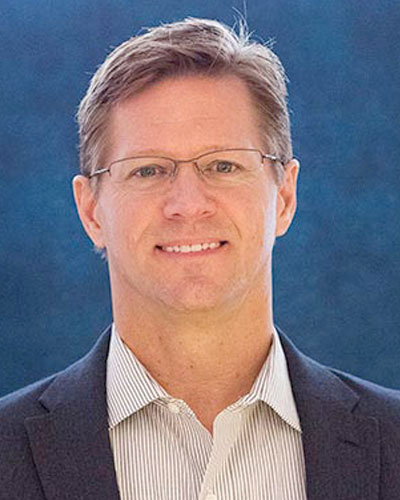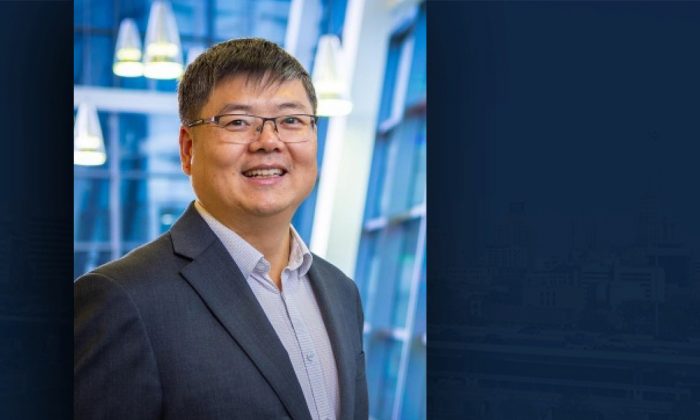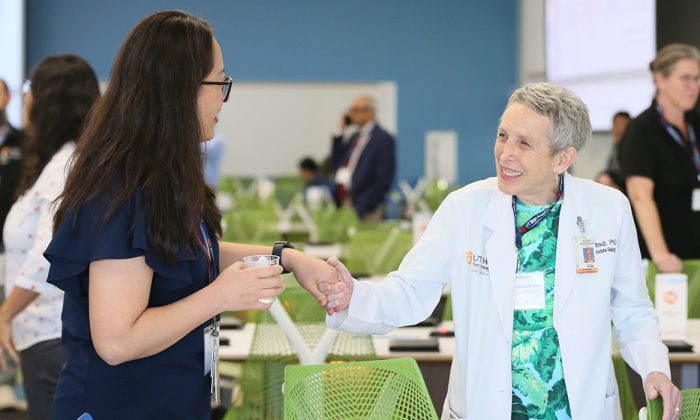A bill passed by the Texas legislature last summer aimed to position the state as a leader in quantum computing, networking and sensing.
Established with funds through HB 4751, the Texas Quantum Initiative will support research and economic development, laying the groundwork for quantum success and creating an advisory board to guide policymaking.
Quantum computing has the powerful capacity to test multiple possibilities simultaneously and solve complex problems faster than traditional computing.
With The University of Texas at San Antonio now at the forefront of computing and cybersecurity, the university is uniquely poised to help advance the goals of the initiative, said Jeff Prevost, PhD, executive director of the Open Cloud Institute (OCI), who spoke at the inaugural Quantum Summit at Texas A&M University.

“UT San Antonio is all in,” Prevost said at the event, where leaders from academia, industry and government gathered to chart a roadmap for the initiative. “Our goal is clear: build the talent, the technology and the testbeds that will drive Texas’ quantum future.”
Prevost expects UT San Antonio’s strong foundation in cybersecurity to serve as a key pillar of its quantum strategy.
“San Antonio is known as ‘Cyber City, USA,’ and our university is home to critical infrastructure like the National Security Collaboration Center, which supports the Texas Cyber Command, a college dedicated to AI, cyber and computing, and the Open Cloud Institute,” said Prevost. “That makes us uniquely positioned to lead the charge in quantum cybersecurity.”
The Open Cloud Institute serves as a hub for interdisciplinary research connecting computer science, engineering, cybersecurity and quantum information science.
Last year, the institute led the launch of the Texas Quantum Institute for Cyber Resilience (QuICR), a landmark statewide consortium combining 16 Texas universities, three national laboratories, three commercial quantum companies and a leading research institute.
“QuICR is designed as a research and workforce development ecosystem focused on applying quantum science and engineering to secure critical industries such as manufacturing and healthcare,” Prevost said.
The consortium’s ambitious research agenda includes advancing quantum cryptography, developing resilient materials for scalable quantum systems, creating secure quantum algorithms and building applied cybersecurity testbeds.
It also aims to address ethical and policy challenges and build a quantum-literate workforce capable of leading in the next technological revolution.
“Through initiatives like QuICR, UT San Antonio continues to move to the forefront of Texas’ quantum agenda, helping to ensure that the state not only leads in innovation but also in resilience and security,” Prevost said.
Joining Prevost at the summit was a team of UT San Antonio faculty who presented on a range of specialized quantum topics. They included:
- Panos Markopoulos, PhD, associate professor in the Department of Electrical and Computer Engineering, shared perspectives on integrating quantum sensing into advanced manufacturing.
- Henry Chimal‑Dzul, PhD, assistant professor in the Department of Mathematics, presented on quantum materials and their applications to scalable technologies.
- Kathryn Mayer, PhD, associate professor in the Department of Physics and Astronomy, shared her expertise on science education and interdisciplinary collaboration.
To further the collaboration, OCI will host an event called the Texas Quantum Workshop on Cyber Resilience in the spring.
“We have an answer to the call that HB 4751 set forth — to make Texas the epicenter of quantum innovation,” Prevost said. “Let’s work together to ensure Texas leads the quantum age, just as it has led in so many others.”



